#Battle of Aughrim
Text
#OTD in Irish History | 22 July:
1606 – A commission is instituted to remedy defective land titles.
1691 – The Battle of Aughrim was the decisive battle of the Williamite War in Ireland. It was fought between the Jacobites and the forces of William III on 12 July 1691 (old style Julian calendar), equivalent to 22 July new style (Gregorian calendar), near the village of Aughrim, Co Galway. The battle was one of the more bloody…

View On WordPress
#irelandinspires#irishhistory#OTD#22 July#Battle of Aughrim#Dublin#History#History of Ireland#Ireland#Irish History#Today in Irish History
11 notes
·
View notes
Text
Battle of the Boyne - Pope backed King Billy!
On July 12 every year, Irish Protestants celebrate the Battle of the Boyne even though the Pope backed King Billy - Tony McMahon explains
On July 12 every year, Loyalist Protestants and members of the Orange Order celebrate the Battle of the Boyne. Why? Because this was when the Protestant King William III of England – or King Billy if you prefer – defeated the overthrown English king, James II who had fled to Ireland with his forces. James had tried to restore the Catholic faith in his realms (England, Scotland, Wales, and…
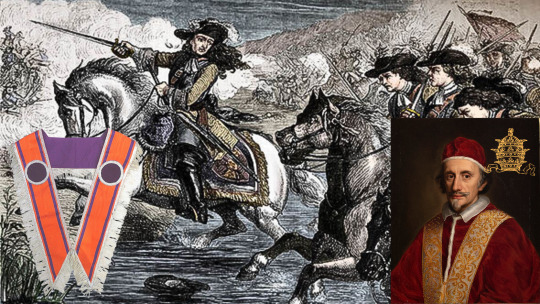
View On WordPress
#12 July#Battle Aughrim#Battle of the Boyne#Cromwell Ireland#Dolly&039;s Brae#Drogheda Wexford#Irish Confederate War#July 12#King Billy#King Louis France#Nine Years War#Orange Order#Orange Order marches#Orange Order parades#Presbyterian#Roman Catholic#William of Orange#Winston Churchill
0 notes
Text
Battle of the Boyne - Pope backed King Billy!
On July 12 every year, Irish Protestants celebrate the Battle of the Boyne even though the Pope backed King Billy - Tony McMahon explains
On July 12 every year, Loyalist Protestants and members of the Orange Order celebrate the Battle of the Boyne. Why? Because this was when the Protestant King William III of England – or King Billy if you prefer – defeated the overthrown English king, James II who had fled to Ireland with his forces. James had tried to restore the Catholic faith in his realms (England, Scotland, Wales, and…
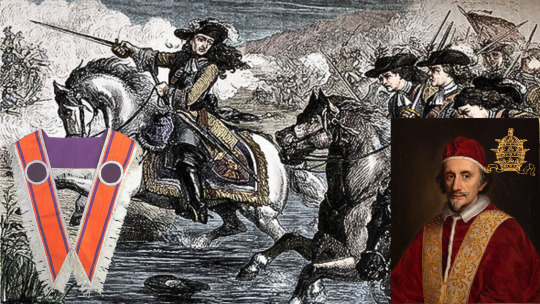
View On WordPress
#12 July#Battle Aughrim#Battle of the Boyne#Cromwell Ireland#Dolly&039;s Brae#Drogheda Wexford#Irish Confederate War#July 12#King Billy#King Louis France#Nine Years War#Orange Order#Orange Order marches#Orange Order parades#Presbyterian#Roman Catholic#William of Orange#Winston Churchill
0 notes
Photo
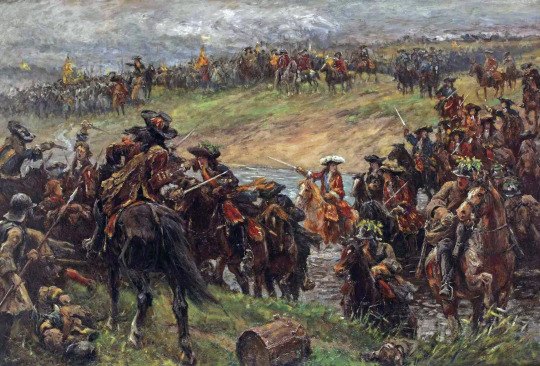
1 July 1690 (using the old calendar): William of Orange's army of Scots, English, Danes, Dutch, Germans, French Huguenots, et al defeat James VII/II's Franco-Irish Jacobite army at the battle of the Boyne. The decisive end to the Williamite war would be at Aughrim on 12 July 1691.
#1690#williamite war in ireland#history#military history#17th century#boyne#battle of the boyne#william of orange#william iii#william prince of orange
36 notes
·
View notes
Photo
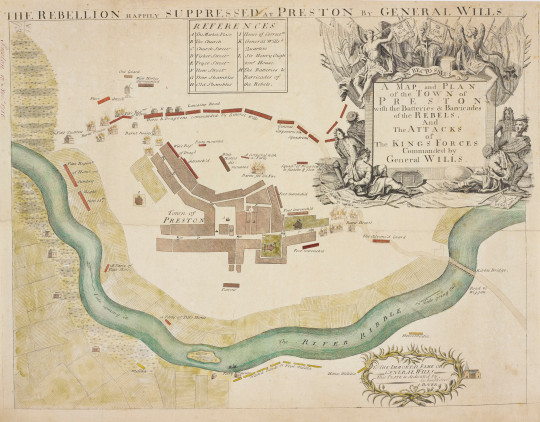
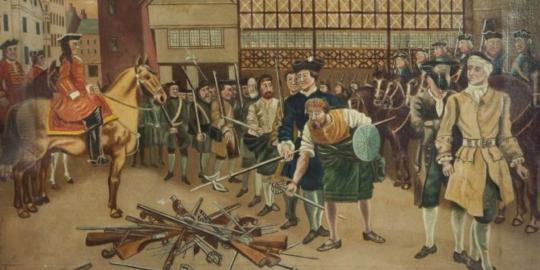
On 13th November 1715 a Jacobite uprising in northern England is cornered and defeated in Preston.
As “Bobbin John” was making a hash of things on Sherrifmuir, over 200 miles south English Jacobites were soundly beaten at Preston.
The dates here are a bit spread out, mainly due to the fighting taking place over a few days. As usual the English historians get it wrong by stating it was the last battle on English soil, but 30 years later there was a battle between Bonnie Prince Charlie’s Jacobite army and government troops at Clifton Moor.
Back to the battle at hand, between 12 and 14 November the Government army of George I caught up with a Jacobite force that had marched unopposed from the Scottish Borders and through the North of England, in support of the “King”James III.
Catholics in England and Scotland had suffered the loss of their King, James VII/II, when he was removed from the thrones of England, Scotland and Ireland in 1688 in the so-called ‘Glorious Revolution' by his daughter Mary and her husband William of Orange, with the backing of prominent Protestants.
James and his supporters had attempted a comeback in Ireland, which was defeated by William at the Boyne and Aughrim, confirming Protestant dominance across the kingdom.
With the death of Queen Anne the Jacobite supporters saw their opportunity to reclaim the throne and the first Jacobite Rising began.
The rebellion started in Scotland, where Catholic support was strongest. The Jacobites saw great success and were able to take much of the country, well down to the Firth of Forth anyway.
Supporters in England were emboldened and an English Jacobite army was created. They met with a small Scottish force of Highlanders and marched through Northern England unopposed, with their sights set on Manchester where they hoped to gain support.
Government forces engaged them at Preston, where the two armies fought through the barricaded streets.
The Jacobites saw the best of the first day and many government troops were killed during an unsuccessful advance and siege.
However many of the English Jacobites recognised the hopelessness of their situation and deserted overnight. New Government troops arrived the following day and the tide was turned.
The Jacobites offered to surrender but the British refused until the Highlanders agreed to lay down their arms and assemble in the market square. In the aftermath of Preston, the ringleaders were executed and many of the captured troops were shipped to the Americas as indentured slaves.
18 notes
·
View notes
Text
I am sitting outside, listening to the 1691 album by Na Casaidigh and a magpie is constantly near me. It seems that the little tuxedo-feathered gentleman vastly enjoys the musical representation of the Battle of Aughrim... xD
#utter nonsense#r rambles#magpie#17th century#william of orange#william iii#james ii#1691#na casaidigh
7 notes
·
View notes
Text
Events 7.12 (before 1900)
70 – The armies of Titus attack the walls of Jerusalem after a six-month siege. Three days later they breach the walls, which enables the army to destroy the Second Temple.
927 – King Constantine II of Scotland, King Hywel Dda of Deheubarth, Ealdred of Bamburgh and King Owain of the Cumbrians accepted the overlordship of King Æthelstan of England, leading to seven years of peace in the north.
1191 – Third Crusade: Saladin's garrison surrenders to Philip Augustus, ending the two-year siege of Acre.
1470 – The Ottomans capture Euboea.
1488 – Joseon Dynasty official Choe Bu returned to Korea after months of shipwrecked travel in China.
1493 – Hartmann Schedel's Nuremberg Chronicle, one of the best-documented early printed books, is published.
1527 – Lê Cung Hoàng ceded the throne to Mạc Đăng Dung, ending the Lê dynasty and starting the Mạc dynasty.
1543 – King Henry VIII of England marries his sixth and last wife, Catherine Parr, at Hampton Court Palace.
1562 – Fray Diego de Landa, acting Bishop of Yucatán, burns the sacred idols and books of the Maya.
1576 – Mughal Empire annexes Bengal after defeating the Bengal Sultanate at the Battle of Rajmahal.
1580 – The Ostrog Bible, one of the early printed Bibles in a Slavic language, is published.
1691 – Battle of Aughrim (Julian calendar): The decisive victory of William III of England's forces in Ireland.
1776 – Captain James Cook begins his third voyage.
1789 – In response to the dismissal of the French finance minister Jacques Necker, the radical journalist Camille Desmoulins gives a speech which results in the storming of the Bastille two days later.
1790 – The Civil Constitution of the Clergy is passed in France by the National Constituent Assembly.
1799 – Ranjit Singh conquers Lahore and becomes Maharaja of the Punjab (Sikh Empire).
1801 – British ships inflict heavy damage on Spanish and French ships in the Second Battle of Algeciras.
1806 – At the insistence of Napoleon, Bavaria, Baden, Württemberg and thirteen minor principalities leave the Holy Roman Empire and form the Confederation of the Rhine.
1812 – The American Army of the Northwest briefly occupies the Upper Canadian settlement at what is now at Windsor, Ontario.
1862 – The Medal of Honor is authorized by the United States Congress.
0 notes
Text
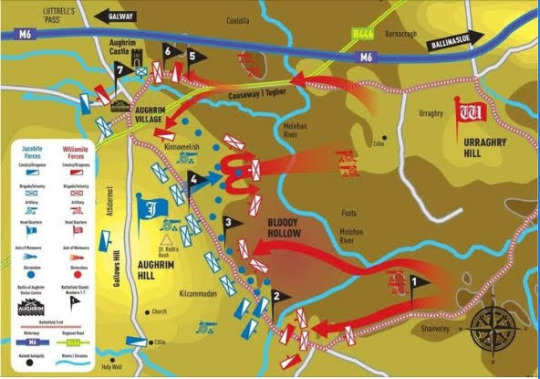
12th July 1691 -The Battle of Aughrim. After the capture of Athlone, King William's forces, commanded by the Dutch General Godert de Ginkell, advanced to capture the port of Galway. The Jacobite army under the Marquis de St Ruth prepared for battle on a ridge at a place called Aughrim, near Ballinasloe, Co. Galway. The Jacobite line stretched from Aughrim Castle south along Aughrim Hill. TheJacobite line was protected by a bog in the valley below. The Williamite starting position was along Urrachree Hill. Both armies were about equal in number with around 20,000 men. The Earl of Meath's Regiment (predecessor of the Royal Irish Regiment) was in support of the first wave that had to negotiate the bog to reach the Jacobite line. The first line of attackers had been ordered to wait on the other side of the bog for the support troops to cross, but they continued to advance leaving Meath's and other supporting troops to re-organise themselves. As a consequence they were targeted by sharp-shooters and were in disarray when St Ruth's cavalry charged them. Ginkell's cavalry came up in support and a large cavalry action took place. With the battle hanging in the balance, the strong reserve of Jacobite cavalry under Sarsfield should have been committed. However Sarsfield had been ordered not to attack unless ordered by St Ruth himself and St Ruth had, unknown to Sarsfield, been killed, decapitated by a cannonball. The Jacobite line broke and ran with the death of their commander and they fled the field. Aughrim marked the end of the Jacobite army in Ireland and was the decisive battle of the war. Meath's regiment suffered one officer, Captain Butler, killed and 4 wounded. Of the NCOs and men, 7 were killed and 8 wounded.
#18thfoot #royalirishregiment #williamitewar #aughrim
Map Credit; https://www.facebook.com/1691Aughrim/
1 note
·
View note
Text
Irish Sessions With Kinnfolk #609
Today we have a special treat, an interview with Kinnfolk! Mitchell Petersen, our engineer behind the curtain, talks with Josh & Julie Kinn about their latest adventures as they take us on a journey to the sessions of Ireland. Fun stories and insights, lessons learned, and an episode bursting with tune sets! It’s all right here this week on The Irish & Celtic Music Podcast, show #609!
Kinnfolk, Arise & Go, Mary - Grace Autumn Lee, Cavort Celtic, The Tannahill Weavers, ÚLLA, The Gothard Sisters, Lilt, Wolf & Clover, Jon Pilatzke, House of Hamill, The Fire, West of Eden, Rising Gael, Marc Gunn
GET CELTIC MUSIC NEWS IN YOUR INBOX
The Celtic Music Magazine is a quick and easy way to plug yourself into more great Celtic culture. Subscribe and get 34 Celtic MP3s for Free.
VOTE IN THE CELTIC TOP 20 FOR 2023
This is our way of finding the best songs and artists each year. You can vote for as many songs and tunes that inspire you in each episode. Your vote helps me create next year's Best Celtic music of 2023 episode. Vote Now!
Two weeks after the episode is launched, I compile your votes to update a playlist on Spotify and YouTube. These are the results of your voting. You can help these artists out by following the playlists and adding tracks you love to your playlists. Follow us on Facebook to find out who is added each week.
Listen on Spotify and YouTube.
THIS WEEK IN CELTIC MUSIC
00:02 - Intro: Mitchell Petersen
00:06 - Arise & Go “Sheepskin and Beeswax / Le Voyageur / Roddy McDonald’s Fancy” from EP
04:05 - WELCOME / WHAT’S NEW WITH KINNFOLK
20:37 - Mary - Grace Autumn Lee “Return to Brooklyn: Muireann’s Jig/Trip to London (Jigs)” from Eyre
24:37 - Cavort Celtic “The Goat Set” from Kilted Cavort
31:17 - The Tannahill Weavers “Pipe Major George Allan Set” from Live And In Session
36:42 - ÚLLA “Fr. Kelly Set (Reels)” from Ulla
40:45 - KINNFOLK INTERVIEW: STORIES FROM THE ROAD
51:34 - The Gothard Sisters “Midsummer Jigs” from Story Girl
54:05 - Lilt “The Price of My Pig / The Coming of Spring / Paddy Fahy's” from X
57:47 - Wolf & Clover “The Columbus Set” from Twelvemonth and a Day
1:01:57 - Jon Pilatzke “The Canadian Set: Fisher's Hornpipe / Cotillon d'Avila LeBlanc / Reel du Forgeron (The Blacksmith's Reel)” from Amongst Friends
1:05:23 - KINNFOLK INTERVIEW: CELTIC MUSIC PERSPECTIVES
1:24:21 - Kinnfolk “Siúil a Rún” (live recording)
1:27:19 - House of Hamil “The Sneezing Loon” from Folk Hero
1:33:22 - The Fire “The Session Set” from Radiance
1:36:48 - West of Eden “The Scilly Set” from Safe Crossing
1:40:22 - Marc Gunn “Battle of Aughrim / Star of Muenster” From upcoming CD, Come Adventure With Me, feat. Sam Gollogily
1:43:57 - THANKS
1:48:39 - Rising Gael “The Parting Glass” from Roots
1:52:25 - CREDITS
This episode of the Irish & Celtic Music Podcast was produced by Mitchell Petersen, Marc Gunn, The Celtfather and our Patrons on Patreon. The show was edited by Mitchell Petersen with Graphics by Miranda Nelson Designs. Visit our website to subscribe to the show. You’ll find links to all of the artists played in this episode.
Todd Wiley is the editor of our Celtic Music Magazine. Subscribe to get 34 Celtic MP3s for Free. Plus, you’ll get 7 weekly news items about what’s happening with Celtic music and culture online. Best of all, you will connect with your Celtic heritage.
Finally, please tell one friend about this podcast. Word of mouth is the absolute best way to support any creative endeavor.
Promote Celtic culture through music at http://celticmusicpodcast.com/.
THANK YOU PATRONS OF THE PODCAST!
Because of Your kind and generous support, this show comes out at least four times a month. Your generosity funds the creation, promotion and production of the show. It allows us to attract new listeners and to help our community grow.
As a patron, you get music - only episodes before regular listeners, vote in the Celtic Top 20, and you get a private feed to listen to the show. All that for as little as $1 per episode.
A special thanks to our Celtic Legends: Bill Mandeville, Marti Meyers, Meghan Walker, Dan mcDade, Carol Baril, Miranda Nelson, Nancie Barnett, Kevin Long, Gary R Hook, Lynda MacNeil, Kelly Garrod, Annie Lorkowski, Shawn Cali
HERE IS YOUR THREE STEP PLAN TO SUPPORT THE PODCAST
Go to our Patreon page.
Decide how much you want to pledge every week, $1, $5, $10. Make sure to cap how much you want to spend per month.
Keep listening to the Irish & Celtic Music Podcast to celebrate Celtic culture through music.
You can become a generous Patron of the Podcast on Patreon at SongHenge.com.
WE WANT YOUR FEEDBACK
What are you doing today while listening to the podcast? Send a written comment along with a picture of one of your trips to Ireland.
Email me at celticpodcast@gmail, message Marc on Facebook, or contact him through Mastodon @[email protected].
Check out this episode!
1 note
·
View note
Note
14 (a song that you didn't play at your wedding, but would if you were getting married tomorrow) & 30
14: A song that you would love played at your wedding didn’t play at your wedding, but would if you were getting married tomorrow
This is a hard one! I’m still really happy with the choices I made for our wedding music. I suppose Hymn 87: Welcome Happy Morning by Hanan Townshend (from the Tree of Life soundtrack) would be a really good choice just before the processional (Joy by George Winston). It echoes some of the notes and feeling of For the Beauty of the Earth, which I sang with my mom and sisters later on during the ceremony.
youtube
Also, instead of the Jars of Clay song we played during our first Communion together, Hymn,, I might choose this one instead today (though both are good):
youtube
30: A song that reminds you of yourself
Pretty sure I’ve posted this one before, but The Battle of Aughrim/The Star Above the Garter by Cherish the Ladies. (Coincidentally, the latter tune was played at my wedding — albeit a bit slower — while I walked down the isle.)
youtube
#roguepromise#thank you <333#asks#songs#Hanan Townshend#Tree of Life#Welcome Happy Morning#Jars of Clay#This Road#The Battle of Aughrim#The Star Above the Garter#Cherish the Ladies#thoughts#j
1 note
·
View note
Text
#OTD in 1691 – The bloodiest battle in Irish History | The Batle of Aughrim.
The Battle of Aughrim was the bloodiest battle ever fought on Irish soil. It took place on the 22nd of July, 1691 and was the penultimate stand of the Jacobite forces in Ireland. Some sources mark the date of the Battle of Aughrim as 12th July 1691. This is due to a change in the calendar in the 18th century. The 22nd of July is the modern day equivalent of 12th July in 1691.
The Battle…
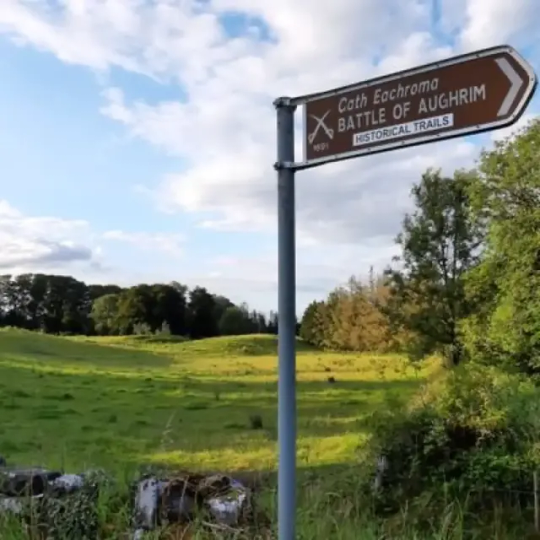
View On WordPress
#Battle of Aughrim#Bloodiest Battle in Irish History#Godert de Ginkel#History#History of Ireland#Ireland#Irish History#Jacobites#King James#King William of Orange
4 notes
·
View notes
Video
youtube
Battle of Aughrim - Celtic Guitar - traditional Irish music
This here is a traditional piece of Irish music entitled "The Battle of Aughrim", named for the bloodiest battle in Irish history in which the Jacobite Army was defeated by the Williamite army and, subsequently, Ireland fell into control of the English (12 July 1691).
7 notes
·
View notes
Text
Is Nepean Ottawa a good place to live
One of the most historic areas in all of Ottawa is Nepean. The name Nepean comes from the firstottas or settlers that settled in the area around what is now downtown Nepean. When the railway was first introduced to the area, it was in Nepean that many first class stations were built such as Metzkarino and Nepean. Even today, Nepean is one of the best examples of a Canadian railway station. It is often compared to London's Kings Cross station.
As it is the heart of Canadian politics, many people travel to Nepean to see the Parliament Buildings and the Governor General. Although not located in Nepean, you will still find some very historic buildings that can be explored. The Rideau Hall, for example, is the former residence of the first British Prime Minister, John Alexander. The Rideau Centre, a theatre complex, and the Rideau Canal are also worth visiting. These venues host popular events like concerts, film festivals, boat shows, etc.
Nepean is not without its attractions however. It has a vibrant economy with many events and festivals that draw tourists in droves. In addition, Nepean has a rich history and a strong present. There are many things to do in and around the neighbourhood such as taking part in the annual Jazz Festival, attending a Reggae concert in the Artspace (which is Canada's oldest African-American community), shopping in Old Town, and travelling to neighbouring communities such as Kanata, Brantford, and Kitchener.
Despite its relatively young age, Nepean is a stable community. It is known for its strong economy and for having a low crime rate. This makes it a good place to raise children. The population is spread out enough so that you will never feel left out. The schools in the area also provide a good education for the children.
It is not just a good place to live in, but a great place to visit. There are many tourist attractions in and around the area. The Rideau Canal is one of the most popular routes for visitors to take. If you are looking for a place to spend a quiet day admiring the canal, this is the place to go. Or, you could also go to Port Hawea and view the many islands that make up Nepean Bay.
You don't need to delve too far into the past to learn about Nepean's history. There are many museums here that tell the history of the area. Many interesting artifacts can be found in the Museum of Irish Deserters in the City Centre. The history museum is also a good place to learn about the many different cultures that settled in the area. There are many stories to listen to.
While it is true that the weather can be a bit chilly in spring, the weather remains mild year round. Winter is a good time to go hiking as the icy trails will offer some respite from the cold. In terms of activities, try heading to the Botanical Gardens of Isnepean - a great site to see in the spring. While you're there, you may also want to check out the historical buildings.
Overall, Isnepean is a great area to consider relocating to. There are many aspects of the area to explore. The winter months offer a good time to hit the trails. In addition, you will find plenty to do in the spring and summer. Take your time in exploring the history of the area before you decide to move to Isnepean.
If you are thinking about staying in Nepean, Ottawa you will find a number of local attractions. The area has several historical sites worth visiting. In particular, the Battle of Aughrim is a popular event that takes place every year in the area. If you love history, this is a good event to attend.
You can also find some great shops in the area. If you are interested in antiques, you will likely like what you find in Galway. If you enjoy art, you will probably enjoy Galway City's galleries. For the best selection of hotels in Isnepean, ask around and do some research. You might be surprised at how good deals can be found if you know where to look.
Overall, Is Nepean is a great place to live. There is plenty to do outside of the city as well as to do within it. In particular, you will find a number of cultural festivals during the year, such as the Isnepean International Art Festival. Do make sure that you check out the Galway Hub before making your decision because this website offers information on all of the hotels in Is Nepean and also lists some travel and accommodation bargains.
1 note
·
View note
Photo

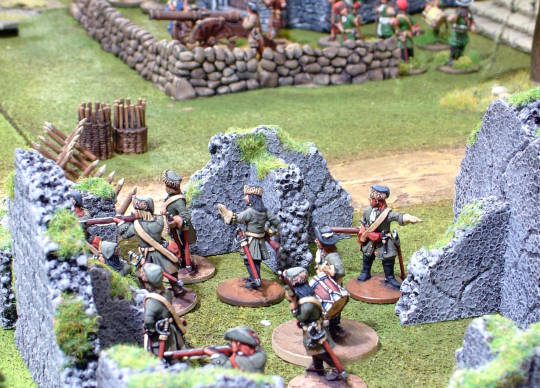
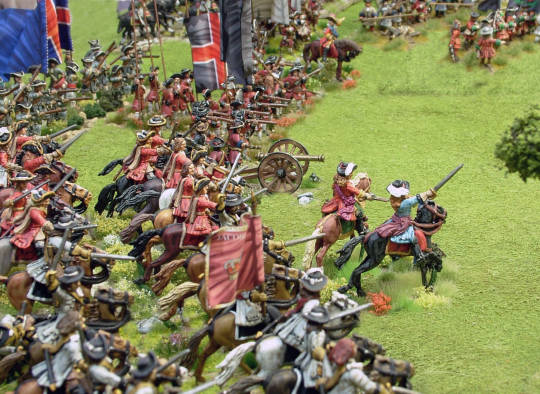
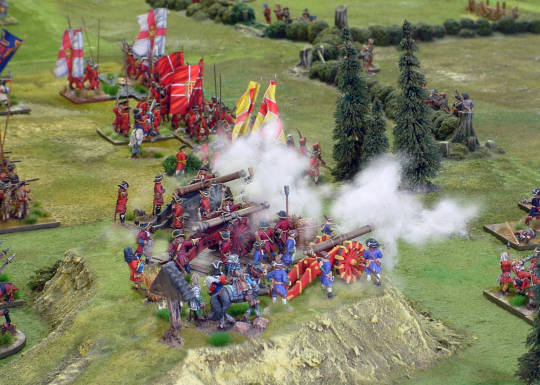
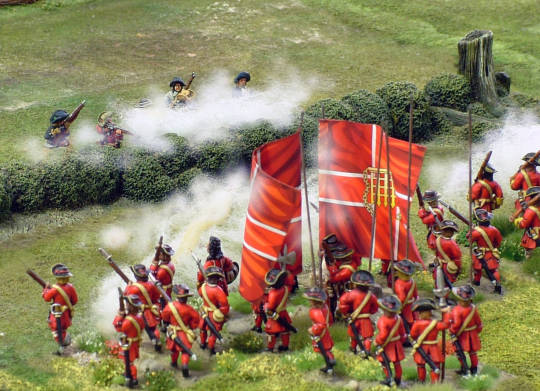

Barry Hilton’s miniature recreation of the battle of Aughrim, July 12 1691, which proved to be the decisive engagement of the Williamite War in Ireland, and the bloodiest battle fought there.
14 notes
·
View notes
Text
It's pretty established that I am an Oscar Wilde enthusiast by now.
But not only. And I feel like sharing with you some of my favourite poems, because why not.
The sheepfold, from the battle of Aughrim - Richard Murphy
The Kings are out - Patrick Galvin
From a farewell to English - Brendan Kennelly
At the crossing - Fleur Adcock
The fetch - Ciaran Carson
Polar - Gillian Clark
And one of my personal favourite poet : Seamus Heaney.
Death of a Naturalist
Sloe Gin
Lovers on Aran
Requiem for the Croppies
Casualty
#poems#poems rec#poets rec#really feel like sharing some poetry cause why not#also i love some french authors but irish poets/writers? they were born to be storytellers#i am not really knowledgable on American poetry ill admit though#seamus heaney#gillian clark#richard murphy#patrick galvin#brendan Kennelly#fleur adcock#ciaran carson
9 notes
·
View notes
Text
Events 7.12
70 – The armies of Titus attack the walls of Jerusalem after a six-month siege. Three days later they breach the walls, which enables the army to destroy the Second Temple.
927 – King Constantine II of Scotland, King Hywel Dda of Deheubarth, Ealdred of Bamburgh and King Owain of the Cumbrians accepted the overlordship of King Æthelstan of England, leading to seven years of peace in the north.
1191 – Third Crusade: Saladin's garrison surrenders to Philip Augustus, ending the two-year siege of Acre.
1470 – The Ottomans capture Euboea.
1488 – Joseon Dynasty official Choe Bu returned to Korea after months of shipwrecked travel in China.
1493 – Hartmann Schedel's Nuremberg Chronicle, one of the best-documented early printed books, is published.
1527 – Lê Cung Hoàng ceded the throne to Mạc Đăng Dung, ending the Lê dynasty and starting the Mạc dynasty.
1543 – King Henry VIII of England marries his sixth and last wife, Catherine Parr, at Hampton Court Palace.
1562 – Fray Diego de Landa, acting Bishop of Yucatán, burns the sacred idols and books of the Maya.
1576 – Mughal Empire annexes Bengal after defeating the Bengal Sultanate at the Battle of Rajmahal.
1580 – The Ostrog Bible, one of the early printed Bibles in a Slavic language, is published.
1691 – Battle of Aughrim (Julian calendar): The decisive victory of William III of England's forces in Ireland.
1776 – Captain James Cook begins his third voyage.
1789 – In response to the dismissal of the French finance minister Jacques Necker, the radical journalist Camille Desmoulins gives a speech which results in the storming of the Bastille two days later.
1790 – The Civil Constitution of the Clergy is passed in France by the National Constituent Assembly.
1799 – Ranjit Singh conquers Lahore and becomes Maharaja of the Punjab (Sikh Empire).
1801 – British ships inflict heavy damage on Spanish and French ships in the Second Battle of Algeciras.
1806 – At the insistence of Napoleon, Bavaria, Baden, Württemberg and thirteen minor principalities leave the Holy Roman Empire and form the Confederation of the Rhine.
1812 – The American Army of the Northwest briefly occupies the Upper Canadian settlement at what is now at Windsor, Ontario.
1862 – The Medal of Honor is authorized by the United States Congress.
1913 – Serbian forces begin their siege of the Bulgarian city of Vidin; the siege is later called off when the war ends.
1913 – The Second Revolution breaks out against the Beiyang government, as Li Liejun proclaims Jiangxi independent from the Republic of China.
1917 – The Bisbee Deportation occurs as vigilantes kidnap and deport nearly 1,300 striking miners and others from Bisbee, Arizona.
1918 – The Imperial Japanese Navy battleship Kawachi blows up at Shunan, western Honshu, Japan, killing at least 621.
1920 – The Soviet–Lithuanian Peace Treaty is signed, by which Soviet Russia recognizes the independence of Lithuania.
1943 – German and Soviet forces engage in the Battle of Prokhorovka, one of the largest armored engagements of all time.
1948 – Israeli Prime Minister David Ben-Gurion orders the expulsion of Palestinians from the towns of Lod and Ramla.
1960 – Orlyonok, the main Young Pioneer camp of the Russian SFSR, is founded.
1961 – Indian city Pune floods due to failure of the Khadakwasla and Panshet dams, killing at least two thousand people.
1961 – ČSA Flight 511 crashes at Casablanca–Anfa Airport in Morocco, killing 72.
1962 – The Rolling Stones perform for the first time at London's Marquee Club.
1963 – Pauline Reade, 16, disappears in Gorton, England, the first victim in the Moors murders.
1967 – Riots begin in Newark, New Jersey.
1971 – The Australian Aboriginal Flag is flown for the first time.
1973 – A fire destroys the entire sixth floor of the National Personnel Records Center of the United States.
1975 – São Tomé and Príncipe declare independence from Portugal.
1979 – The island nation of Kiribati becomes independent from the United Kingdom.
1995 – Chinese seismologists successfully predict the 1995 Myanmar–China earthquake, reducing the number of casualties to 11.
1998 – The Ulster Volunteer Force attacked a house in Ballymoney, County Antrim, Northern Ireland with a petrol bomb, killing the Quinn brothers.
2001 – Space Shuttle program: Space Shuttle Atlantis is launched on mission STS-104, carrying the Quest Joint Airlock to the International Space Station.
2006 – The 2006 Lebanon War begins.
2007 – U.S. Army Apache helicopters engage in airstrikes against armed insurgents in Baghdad, Iraq, where civilians are killed; footage from the cockpit is later leaked to the Internet.
2012 – Syrian Civil War: Government forces target the homes of rebels and activists in Tremseh and kill anywhere between 68 and 150 people.
2012 – A tank truck explosion kills more than 100 people in Okobie, Nigeria.
2013 – Six people are killed and 200 injured in a French passenger train derailment in Brétigny-sur-Orge.
0 notes